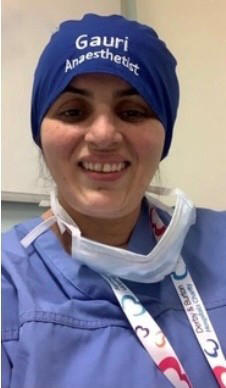I’ve now been SAS advocate at the University Hospitals of Derby and Burton NHS Foundation Trust for more than half a year – and it’s been a busy period!
As the first staff, associate specialist and specialty doctor advocate at my trust, I didn’t know what to expect. Essentially, I would be the one to create the blueprint for future appointees, so this posed an initial challenge from the outset. Several months later, after two face-to-face wellbeing forums, a handful of presentations and consistent engagement with the SAS workforce, I can finally see the role taking shape.
The main elements of the SAS advocate role are:
- Promotion of health and wellbeing for SAS doctors, especially in relation to the impact of the pandemic
- Helping colleagues to deal with issues in the workplace
- Collaborating with SAS tutors and engaging with SAS staff.
So: promotion, collaboration and engagement are the fundamental aspects of being a SAS advocate. Thankfully, the BMA and trust management have been immensely supportive as I settle into the swing of things.
Working with close to 150 SAS doctors at my trust, I deal with a range of issues – in particular, cases where staff are extremely fatigued, which is why I am so keen to promote health and wellbeing among SAS staff. The first wellbeing forum in March was successful, but engagement from SAS colleagues was quite limited, which did raise concerns, but we are looking for ways to improve this. Nevertheless, I was extremely proud that the event was face-to-face and helped to establish the SAS network.
I then presented my first board report – although daunting, it was a great experience. In May, I attended the BMA women’s breakfast meeting, where I presented on the recent SAS conference, and this was met with extremely positive feedback.
In addition, I was elected as an SAS representative to the ARM, which I attended recently. With so much on the agenda for SAS doctors – and on top of my profession as a specialty doctor in anaesthesia – it would be easy to become overwhelmed, but I plan to continue taking baby steps to ensure I don’t burn out.
My advocacy role involves supporting and signposting SAS doctors, often to occupational health or the freedom to speak up guardians, just to name a few. The most exciting part so far has been the opportunity for me and a colleague to undertake training delivered by TRiM – a trauma-focused peer support system to help people who have experienced a traumatic event.
We are now able to respond to adverse incidents at our trust, and we’re honoured that this is the high level of support that SAS doctors are now delivering.
 Dr Sankhe
Dr Sankhe
So why is the role of a SAS advocate so important?
Well, SAS doctors are permanent, important staff members who give so much to the clinical profession. However, we can only give as far as our own needs allow us to. A SAS advocate is there to provide much-needed support, assistance and advice.
We need to be taken care of too, and it’s crucial that SAS advocates are allocated PAs (programmed activities) specifically to undertake this role, and to be supported in doing so by their employer.
The role of a SAS advocate would have been pivotal when I first arrived in England from India all those years ago (seems like a distant memory now) and I really struggled adapting to life in the UK.
Getting used to the London Tube network, for example – so many unwritten rules! But gradually, little things helped me get to where I am now. And if my experiences can help other SAS doctors, I know I am doing something right.
All trusts should appoint a SAS advocate – the benefits are endless and with time, there will be noticeable, positive changes in the SAS workforce. If we maintain engagement and continue to build the SAS network, the only way is up.
Roll on the next six months!
Gauri Sankhe is an anaesthetist at the University Hospitals of Derby and Burton
